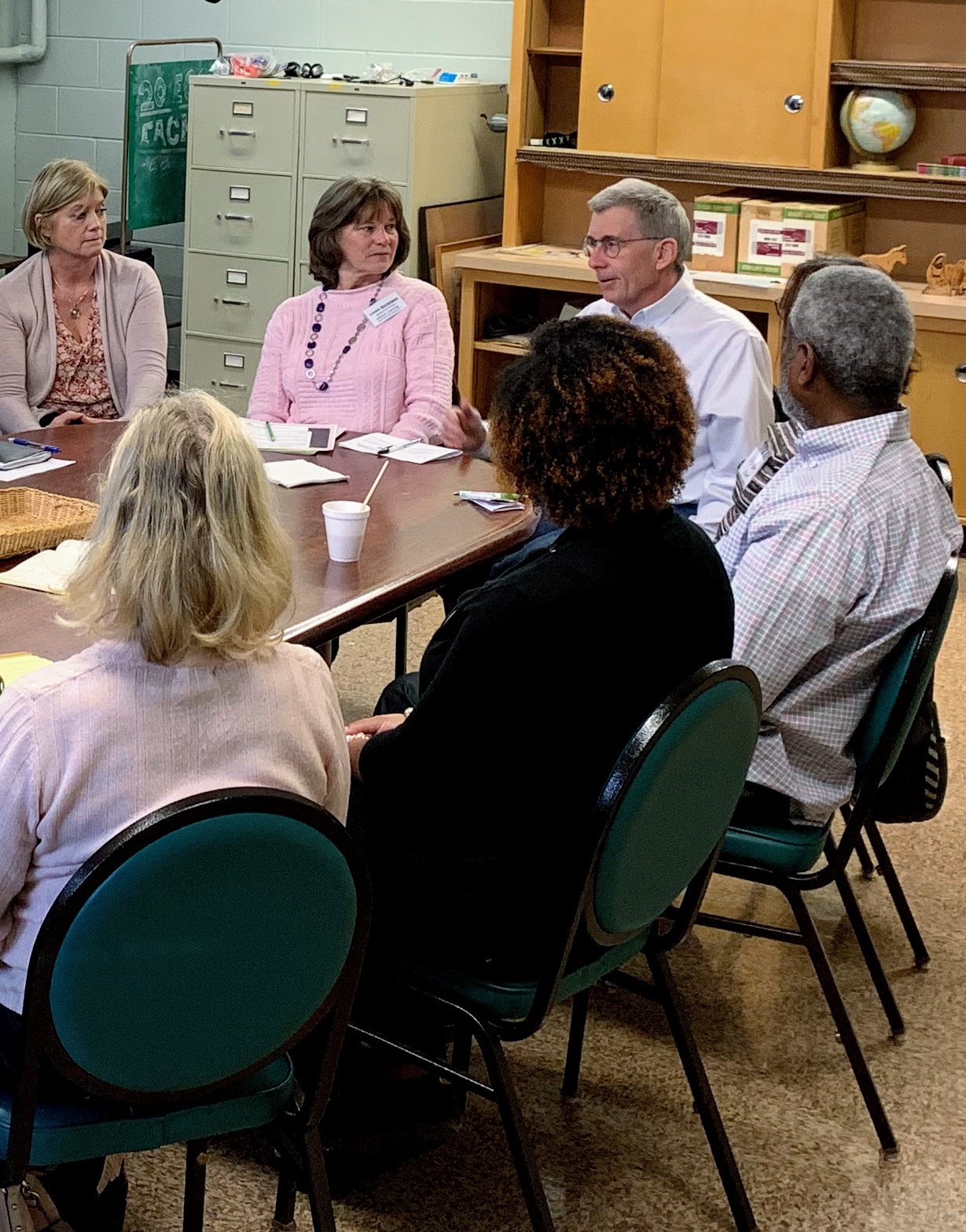Over the years, our Without Warning support group has wrestled with what it means to be welcoming. Or maybe it’s more accurate to say, we have wrestled with what it means to be unwelcoming. At their best, support groups are a space for people to feel connection and comfort around others who totally understand. That feeling, however, might not always happen naturally or there might be times when the welcoming spirit hits a bump. As support group facilitators, how do we handle these situations and what procedures do we put into place to create or re-create that welcoming environment?
Our group is for many who seek support - the people experiencing dementia, the family members, friends and at times paid caregivers. Before we break into our 5 small groups, there is social time where the whole group is together sitting around small tables visiting and enjoying morning pastries. On several occasions, people with dementia have reported feeling disregarded or talked about during the conversation of the family members and others. From the caregiver’s perspective, our social time is a chance to visit with other caregivers who might not be in their smaller groups and I can see how conversation can start without a sense of who else is around.
Within our groups there have been times when people have told me that the conversation didn’t match their situation or their feelings were hurt. Though we try to divide our smaller groups based on where people are in the disease process, there can at times, still be a disconnect.
When new members join our group, I worry what they are thinking and how welcomed they feel. Our social time, which begins the meeting, can be over 60 people. Walking into such a space can be intimidating for any newcomer and especially with the stress of living with younger onset Alzheimer’s disease.
And finally, there are probably many more situations where someone feels unwelcome that isn’t reported to or recognized by us as facilitators. People might leave the group with feelings hurt or concerns unaddressed.
So, all this all brings us back to our initial question. What should support group facilitators do to help people feel welcomed?
Here are a few things we have tried at Without Warning:
- Have specific staff or family members help welcome new members. For us, they sit with new people during the social time to help ease them into the group;
- Provide name tags;
- Provide a welcome packet;
- During social times, remind members that this is a space for all. We have made announcements and had signs on the tables encouraging members to include everyone in the conversation;
- Recognize new members in the smaller groups and give time for sharing their story;
- Check in with members individually to see how they are feeling and if anything could be different in the group meetings. This is especially important for new members;
- Set a kind and understanding tone;
- Encourage community and as the facilitator, stress that we are here to support each other.
- Watch for and maybe address non-verbal cues that indicate a person might feel uncomfortable or disconnected
- On occasion, mention that feelings can sometimes be hurt and have group discuss how to address such situations; and,
- Pay attention to how you close the meetings. Give time for final comments and thank the members for the way they support and care for each other.
Anytime there is a group of people gathered together that share a common experience, it can be beautiful and supportive and at times, a little messy. As support group facilitators, we need to recognize the importance of checking in with members to ensure they feel comfortable and connected. Groups always change over time and we as facilitators, must change and readjust too. Keeping that watchful eye on how welcome people feel in our groups is a critical part of our roles as the support group facilitator.


